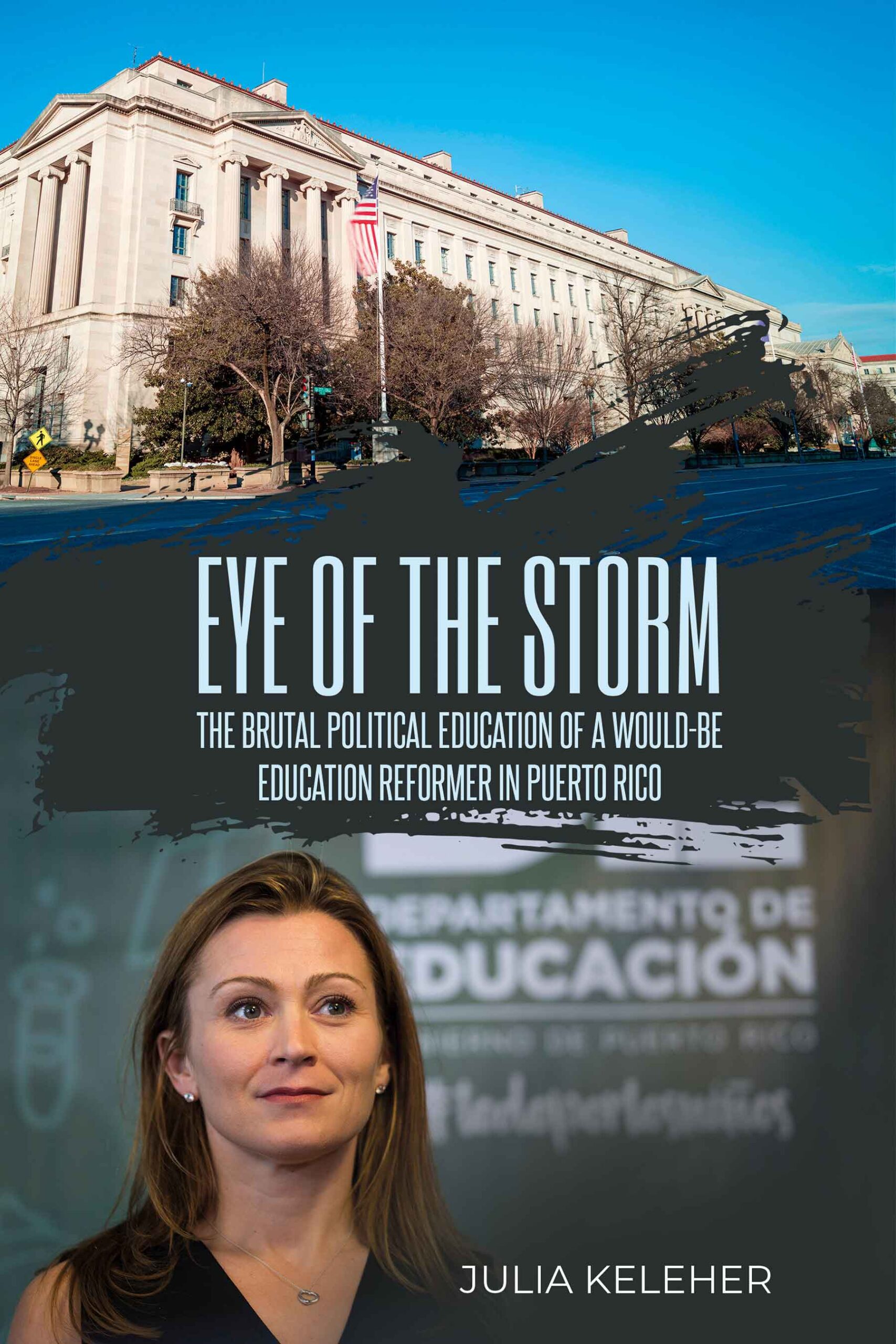About the Book
Eye of the Storm is both a memoir and a case study—an unflinching look at what it means to lead change inside powerful, imperfect systems. Drawing from her tumultuous tenure as Puerto Rico’s Secretary of Education, Julia Keleher shares a deeply personal account of navigating reform, politics, and justice while never losing sight of the people at the heart of it all.
Through vivid storytelling, Keleher exposes the human impact of opportunity gaps, structural inequalities, and political gridlock. She also reflects on the toll of a criminal justice system that too often values punishment over fairness. Honest about both her successes and her mistakes, she invites readers into the complexity of leadership under fire—and the courage it takes to keep pushing for dignity, access, and possibility when the odds are stacked against you.
What people are saying...
The Eye of the Storm offers an unflinching look at the challenges Julia faced—and how they forged the leader she is today. Her story reminds us that purpose often emerges from struggle, and that conviction, compassion, and courage can coexist even in the hardest moments. It’s a powerful reflection of how strength is built, not inherited. - Jocelyn, Philanthropist and Education Advocate
Julia embodies tenacity in its truest form. No matter how many times life tried to knock her down, she rose—stronger, wiser, and still full of purpose. Her resilience isn’t just inspiring; it’s a masterclass in perseverance. Her tenacity is quiet but relentless and her courage redefines what it means to keep going. - Barb, Finance Executive

